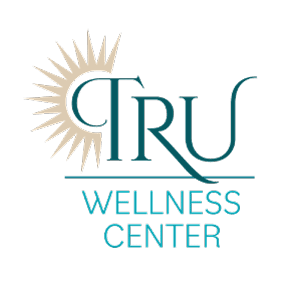Depression is a complex and challenging condition that affects millions of people worldwide. It’s more than just feeling sad; it’s a pervasive and often debilitating illness that can significantly impact your life. Fortunately, depression is treatable, and various options are available to help individuals on their journey to recovery. In this blog post, we’ll explore what to do when it feels like nothing is helping your depression.
Defining Depression
Depression is a serious medical illness that can negatively affect how you feel, think, and act. According to the American Psychiatric Association, it causes feelings of sadness or disinterest in activities you once enjoyed and can lead to emotional and physical problems. Depression is a prevalent condition, affecting approximately 1 in 15 adults in any given year and 1 in 6 people at some point in their lives.
Common symptoms of depression include:
- Having a depressed mood or feeling sad.
- Decreased interest or pleasure in activities once enjoyed.
- Changes in appetite—weight loss or gain unrelated to dieting.
- Sleeping too much or difficulty sleeping.
- Reduced energy levels or increased fatigue.
- Slowed movements or speech.
- Feeling worthless or guilty.
- Difficulty thinking, concentrating, or making decisions.
- Thoughts of death or suicide.
Unique Experiences with Depression
One of the most critical aspects to understand about depression is that it’s not a one-size-fits-all condition. It affects individuals in highly diverse ways, and what may work as an effective coping strategy for one person might not resonate with another. This diversity in experiences is why it’s crucial to acknowledge and respect the unique nature of depression.
Symptom Variation: Depression manifests differently in people. While the common symptoms include sadness, loss of interest, changes in appetite, and sleep disturbances, the intensity and combination of these symptoms can vary widely. Some individuals may primarily experience emotional symptoms, while others struggle more with physical symptoms like fatigue and sleep disturbances.
Triggers and Causes: Various factors can trigger depression, including genetics, life events, trauma, or chronic stress. Understanding the underlying causes of your depression is a crucial step in tailoring an effective treatment plan. For some, it may be related to a specific life event, while for others, it could be a lifelong battle.
Coping Mechanisms: People develop their unique coping mechanisms to deal with depression. Some may find solace in creative outlets like art or music, while others may turn to exercise or nature. Understanding what coping mechanisms work best for you can be a significant part of managing your depression effectively.
Treatment Preferences: Personal preferences and comfort levels significantly affect treatment success. Some individuals may prefer individual therapy, while others thrive in group settings. Likewise, some people may be open to medication, while others may seek alternative therapies. It’s important to explore different treatment options and choose the ones that align with your values and comfort levels.
Support Systems: The availability of a support system varies from person to person. Some individuals may have a strong network of friends and family who provide unwavering support, while others may feel isolated and alone in their struggle. Building and nurturing a support system that suits your needs can be critical to managing depression.
Progress and Recovery: The pace and nature of progress in overcoming depression can also differ. Some individuals may experience steady improvements with treatment, while others may face setbacks and relapses. It’s essential to be patient with yourself and acknowledge that each person’s journey to recovery is unique.
Self-awareness: Self-awareness is a powerful tool in managing depression. Understanding your triggers, warning signs, and behavior patterns can help you proactively prevent or mitigate depressive episodes. Journaling or therapy can be helpful tools in developing this self-awareness.
Seeking Professional Help for Depression
When grappling with the weight of depression, reaching out for professional help can be one of the most significant and transformative steps toward recovery. Depression is a complex and often overwhelming condition, and the path to healing can be daunting when you try to navigate it alone. Fortunately, there are dedicated mental health professionals who specialize in understanding and treating depression. In this section, we’ll delve into the various avenues of professional help available, from medications to therapy, and alternative therapies. Seeking guidance from these experts is not a sign of weakness; rather, it’s a courageous act of self-compassion and the first stride toward regaining control over your life.
Professional help for depression typically takes the form of one of the following modalities:
Therapy: Therapeutic interventions, such as cognitive-behavioral therapy (CBT) or dialectical behavior therapy (DBT), can be highly effective. Group therapy settings can also offer a unique sense of community and support.
- If you’re looking for DBT providers, you can visit MN DBT Providers.
- In crisis situations, Crisis Services can provide immediate help.
CBT vs. DBT: CBT focuses on the link between your thoughts, feelings, and behaviors, seeking to replace unhelpful patterns with more constructive ones. DBT, a type of CBT, has four primary areas of focus: regulating emotions, improving interpersonal effectiveness, enhancing mindfulness, and developing distress tolerance. If you’d like to read more about the differences between CBT and DBT, visit PsychCentral.
Antidepressant Medications: Many individuals with depression benefit from antidepressant medications. However, working closely with a mental health professional is essential to find the proper medication and dosage that suits your specific needs. Remember that it may take some time to see the full effects of medication.
Alternative Therapies: Sometimes, depression may not respond to standard treatments, leading to treatment-resistant depression. This condition is defined by a lack of meaningful improvement after trying two or more antidepressants from different classes for an adequate duration. For those who fall into this category, alternative therapies may offer hope:
- Acupuncture
- Massage
- Transcranial Magnetic Stimulator (TMS)
- Electro-Convulsive Therapy (ECT)
Lifestyle Changes that Affect Depression
Implementing lifestyle changes when you are suffering from depression can feel like an impossible task, but doing so can significantly impact your depression. Regular exercise, a balanced diet, adequate sleep, yoga, meditation, and deep breathing exercises can all help manage symptoms and reduce stress. But you may need the support of a professional before you can effectively make these types of changes while in the throes of depression.
Remember, you don’t have to navigate your journey through depression alone. Seeking help from a mental health professional is crucial to finding the proper treatment plan for your unique needs. Depression is treatable, and with the right support, you can regain control of your life and start on the path to recovery. If you’d like more information, send us an email at info@truhealthwellness.net



